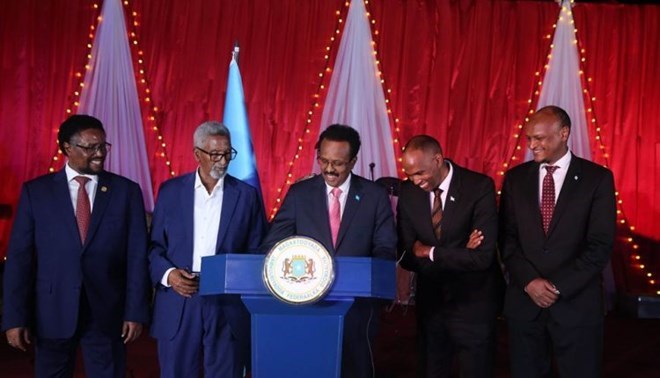
Source: Hiiraan Online, Friday February 21, 2020

MOGADISHU (HOL) – President Mohamed Farmaajo has assented into the Elections Act ushering in a new chapter in preparations for parliamentary and presidential elections which are barely eight months away.
Speaking after signing into law the polls legislation, President Farmaajo said its passage now handed over power to the people to choose the leaders they want.
“Power has today been restored and now in the hands of Somali people,” the President said. “The House of the People and the Upper House have ratified it (Elections Act) and I have signed it tonight so that you can vote for the party and person you want.”
The law which has been rejected by both Puntland and Jubbaland provides for a winner-takes- all formula otherwise known as the First-Past-the Post which is used in Somaliland and neighbouring Kenya.
The model which overturned the Proportional Representation (PR) proposed in the initial Bill by the polls body, NIEC was arrived at by an ad-hoc Elections Bill parliamentary committee following public consultations in all the Federal Member States.
Both the Lower and Upper Houses adopted the model throwing out the PR system proposed by the National Independent Elections Commission (NIEC).
The law envisages a one-person-one vote denying elders and select individuals the power to decide the country’s leadership as they have before.
However, the practicality of a universal vote by October is questionable given the extremely short timeframe against incredibly huge logistical issues.
Security remains one of the key obstacles to realizing a one-person-vote goal in addition to the preparatory work which include drawing up of boundaries and establishing the mechanism for participation of political parties all of which currently hold interim registration certificates.
Key also will be the amendment of the Political Parties Act to provide the framework for the participation of political parties.
